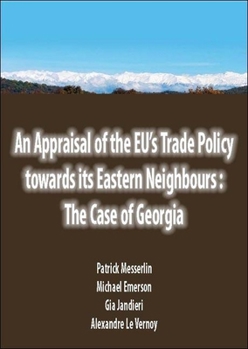An Appraisal of the Eu's Trade Policy Towards Its Eastern Neighbours: The Case of Georgia
This book assesses the state of discussions between the European Union and Georgia on a free trade agreement. The case of Georgia is unique in a few respects. Georgia's own trade policy is more open toward the EU than vice versa, and it has achieved governance reforms on par with some of the EU member states. Yet preconditions imposed by the European Commission are far more onerous than those it demanded of other neighboring countries.
Taking these factors into account, the authors find the Commission's strikingly anomalous approach bad policy in all respects--commerce, development, and foreign policy--and in urgent need of reshaping. They argue that the EU should open negotiations with Georgia without further delay since the country has more than satisfied the relevant subset of preconditions, and that EU trade policies toward Eastern Europe should be adapted to the particular circumstances of the partner state in question rather than following the prevailing one-size-fits-all dogma.
Copublished with the Groupe d'Economie Mondiale at the Institut d'Etudes Politiques de Paris (Sciences Po).
Related Subjects
Business Business & Investing Economics Political Science Politics & Social Sciences




